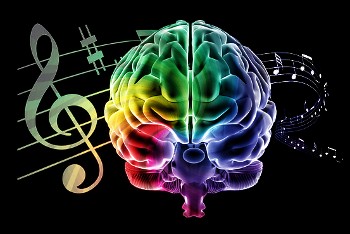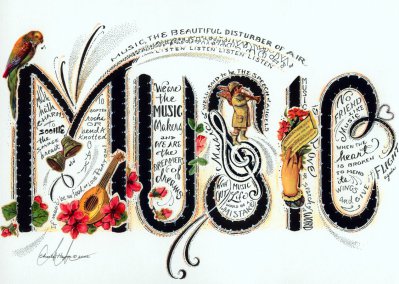Effects of music in our everyday living

Sound waves
Imagine throwing a rock in water and how the water is affected. Just like the rock makes the ripples, the sound waves have a similar effect on our body. Our body is 75 percent water and this is how we can be affected by the music we listen. The sound waves that are bodies are receiving literally move us.
I have personally experienced how calm I feel after listening to jazz or music with a slow tempo. Listening to music with a fast tempo makes me move faster as well. I tend to put this kind of music when I clean, somehow i seem to finish faster. I encourage you to try this.
Effects of Music in your health
Music heals
Music therapy is increasingly used in hospitals to reduce the need for medication during childbirth, to decrease postoperative pain and complement the use of anesthesia during surgery.
Pain relief
- Music produces revulsive effect
- Music may give the patient a sense of control
- Music causes the body to release endorphins to counteract pain
- Slow music relaxes by slowing breathing and heartbeat
Reducing blood pressure
By playing recordings of relaxing music every morning and evening, people with high blood pressure can train themselves to lower their blood pressure - and keep it low.
Speeds Post-Stroke Recovery
Recent research has shown that music listening after stroke not only promotes behavioral recovery, but also induces fine-grained neuroanatomical changes in the recovering brain
Chronic headaches & migraine remedy
Music can help migraine and chronic headache sufferers reduce the intensity, frequency, and duration of the headaches.
Music boosts immunity
Music can boost the immune function. Scientists explain that a particular type of music can create a positive and profound emotional experience, which leads to secretion of immune-boosting hormones. This helps contribute to a reduction in the factors responsible for illness. Listening to music or singing can also decrease levels of stress-related hormone cortisol. Higher levels of cortisol can lead to a decreased immune response.
For more information go to: http://www.emedexpert.com/tips/music.shtml#ref30

Pay attention to the music
When it comes to music everyone always has their preference and opinions on what is the best type of music but I think that it is very important we realize and really listen to what we are hearing. Are we listening to music that will a positive influence? Is the music we listen to full of lies or full of truth? Are the lyric to the music we listen to going to build us up or break us?
Music has a big role in our lives and affects our mood and everyday living. Personally I listen to Christian music more than any other type of music and I find that it relaxes me when I'm stressed out, It calms me when I'm upset or mad, I just find that it soothes my soul. I also like to listen to instrumental music. This type of music is also relaxing and soothing.
I urge you to really take a look at what you are listening to and analyze how it has or will change your feelings and moods.
Don't be afraid to ask for help
Your Jam
What type of music do you listen to most?

The Effect of Different Genres and Familiarity of Background Music On Task Performance
Music is an intricate component in life that can influence an individual’s ability to perform a certain task, whether positively or negatively. It can influence a person’s ability to analyze matters faster and work more efficiently (Norman and Weinberger, 1998). Music can also promote a more positive mood, giving the person a sense of motivation that can further help the individual solve a given task. Whether or not background music influences performance on a given task is a long-standing issue that has not yet been adequately addressed (Crncec, Prior, and Wilson, 2006). Previous studies in the literature concerning the effects of background music on task performance have yielded inconsistent findings. Time after time, music has been shown to be a distracter on task performance (Crncec, Prior, and Wilson, 2006). However, North and Hargreaves (1999) found that familiar background music to an individual was not distracting on task performance. In fact, familiar background music was shown to improve one’s concentration and memory, having a positive influence on task performance. While some researchers conclude that background music enhances task performance, others claim that background music interferes with task performance, acting as a distracter. Yet others claim that background music has no effect on task performance whatsoever.
Further research has also concentrated on the effects of different genres of music (Sogin, 1988) or volume of music (Wolfe, 1983) on task performance. Some research has confirmed that loud and harsh background music, such as rock music, impedes learning, concentration, task performance, and information acquisition (Crncec, Prior, and Wilson, 2006). After an extensive review of the literature in the area of background music on task performance, evidence has gone both ways in proving music effects on task performance. Background music has been proven to act as a distracter as well as a concentrator on a performance task such as problem solving.
For more information go to:http://musicandspeech.voices.wooster.edu/the-effect-of-different-genres-and-familiarity-of-background-music-on-task-performance-2/








